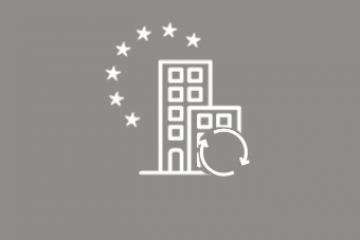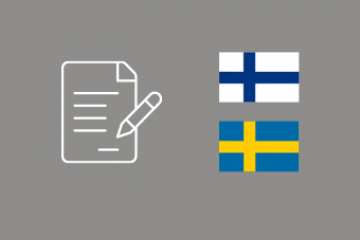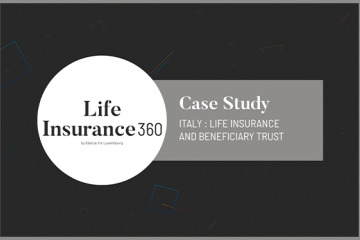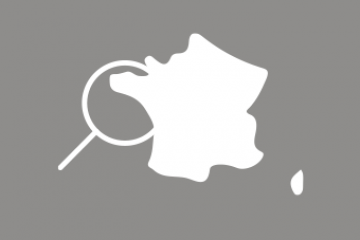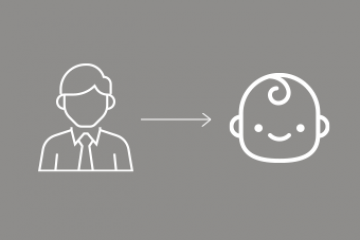How to successfully plan your estate?
EXPERT’S VOICE: Questions to Aurélien Vandewalle
“An important criterion will be the flexibility and "portability" of one’s estate. We note here that a life insurance policy is easily adapted to the law of different countries”
Q1. Could you please define estate planning?
We all know that the Grim Reaper will one day take us by the hand. Legally speaking, the death of a person marks, in particular, the assets transfer to his heirs and beneficiaries. This transfer may be made in accordance with the deceased will or, failing this, it will be carried out by the applicable law to the deceased’s estate[1]. Belgian law, for example, organises the estate transfer to the spouse in usufruct and to children in bare ownership. This transfer is generally an opportunity for the State to take its share of the pie. In Belgium for example - and depending on the Region where the deceased lived, on the family relationship, and on the value of the property transferred – inheritance tax is progressive and varies between 3% and 30% in direct line and between spouses or legal cohabitants, and goes up to 80% in other cases.
Generally speaking, “planning" is to organise in advance and in accordance with a certain plan.
Estate planning is indeed all about planning in advance - and in accordance with a certain plan - for the assets transfer. This organisation makes it possible to distribute our assets between our relatives or beneficiaries in accordance with our will and the specific situation of the family. This organisation may also be an opportunity to optimise the assets transfer from the tax planning perspective and thus preserve the family’s inherited wealth.
[1] According to the applicable European Regulation, in the absence of a choice of law, the law applicable to the entire succession is in principle the law of the State of the habitual residence of the deceased.
Q2. Why plan your estate and succession?
Death is a difficult time for families. It is a time when there are significant risks of conflict. Various hurtful feelings can be exacerbated by sadness and emotion: grudges which rise to the surface, different kinds of jealousy, greed, etc.
Planning your estate aims to “make this difficult moment easier" and prevent the risk of conflicts of all kinds. Planning your estate can also be a way of making significant tax savings. Such savings can be achieved by using “gifts". In order to encourage the transfer of movable assets to younger generations, it is possible, in the three Regions of Belgium, to make gifts with zero - or at least advantageous - taxation. With regard to inherited real estate assets, the three Regions have recently lowered the rate of tax on gifts, thus opening up new tax planning opportunities.
Q3. What are the steps for successful estate planning?
A good parent will tell you that successful planning is one which delivers both family objectives (distribution of assets among the family, and the prevention of conflicts) and tax objectives. Such planning will involve the making of gifts.
Anyone who wants to make a gift will often experience two laudable but seemingly contradictory feelings. He would like to pass the torch on to the younger generation, who need to have the estate assets when they are in the prime of life. He knows, however, that a gift is irrevocable and does not want to find himself exposed, without resources, and with no sight of the estate assets he has built up.
Setting up planning and gifts using a “suitable estate planning tool” will make it possible to reconcile these two wishes which, in reality, only appear to be contradictory.
Life insurance policies have certain advantages. The combination of a life insurance policy and a gift will indeed make it possible to reconcile these objectives. The estate can validly be passed on to younger generations while assuring donor parents that the lump sum which will pay for the annuity charge - reserved when the gift was made - will remain sheltered within the life insurance policy. It may, for example, be provided that the child will only be able to dispose of the assets after consultation with the parents. Being more experienced in financial management, parents may retain the ability to define the investment policy for their child's assets and assist their child during this learning process.
Depending on the particular situation of the family and the “maturity” of the children, one may decide to make a gift to all the children, or only to some of them. We anticipate that equal treatment between the children will be re-established at a later stage or, on the contrary - and if this is their wish - that it will not be re-established. In such cases, a life insurance policy makes it possible to ensure that the only child who has benefited will not squander the estate before sharing it with his brothers and sisters.
In the absence of children, or for those who believe that their children are not yet ready to receive the family estate, an alternative is to make a gift between spouses. Such gifts have the specific feature of being revocable ( cancelled ) at any time. They enable provision to be made for the needs of one’s spouse, while protecting oneself from the tax risk linked to the death of one of the two spouses. Here too, a life insurance policy makes it possible to secure the gifted estate.
In addition to life insurance policies, there are other "estate planning tools" which can be used for gifts of securities: these include, for example, gifts of bare ownership with the usufruct reserved for the benefit of the parent-donor. The ability to arrange such gifts is nevertheless limited. “Simple companies" (formerly called "common law companies") have historically been an effective planning tool. However, recently introduced requirements in terms of registration and accounting, as well as certain negative positions taken by the Flemish tax service, have reduced their attractiveness.
If the wish is not to make a gift, the succession and inheritance can simply be organised to take effect on the day of death. In such cases, one can always make a will or nominate a beneficiary via a life insurance policy. The advantage of a transfer using the beneficiary clause in a life insurance policy compared with using a will is essentially that the transfer using an insurance policy takes place “outside the estate”. This means that the capital can be made available to the beneficiary directly, without having to wait for the estate to receive probate. From a tax perspective, transfers through a will and through a life insurance policy will both be subject to inheritance tax.
Q4. In your opinion, what challenges do we face today?
The crisis we are currently experiencing is linked to the pandemic and will have important consequences in many sectors, impacting our economic, legal and tax environment. Nor should anyone ignore the need for ecological change.
In this changing and unpredictable environment, an important criterion will be the flexibility and "portability" of one’s estate. We note here that a life insurance policy is easily adapted to the law of different countries and generally makes it possible to limit the legal and tax effects in the event of a change of a family’s country of residence.
Young generations will face a whole series of new challenges. In this situation, preservation of the estate and transferring it to the next generation on the best possible terms is more important than ever.
Succession planning can help prevent the risk of conflicts and save taxes. In this context, the Luxembourg life insurance policy can meet these challenges, thanks to its flexibility and portability. The Luxembourg life insurance policy allows you to pass on your assets to the next generations under optimal conditions.
















